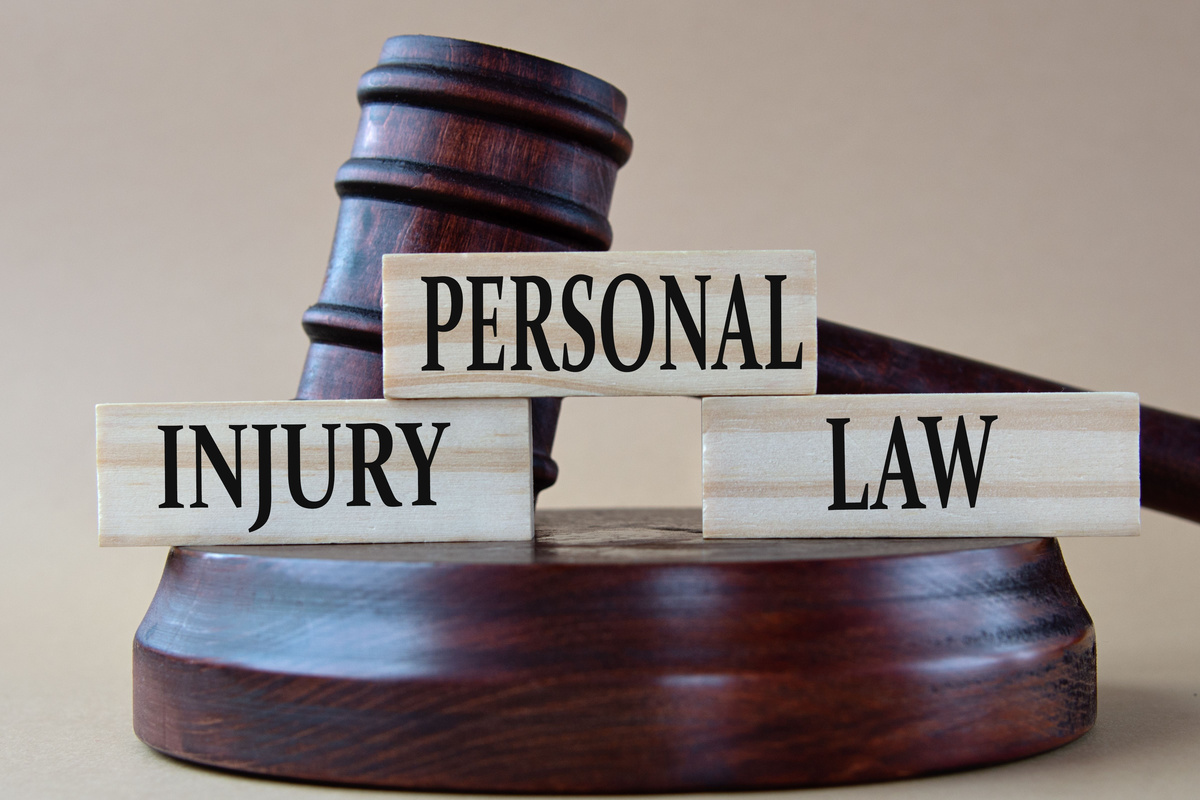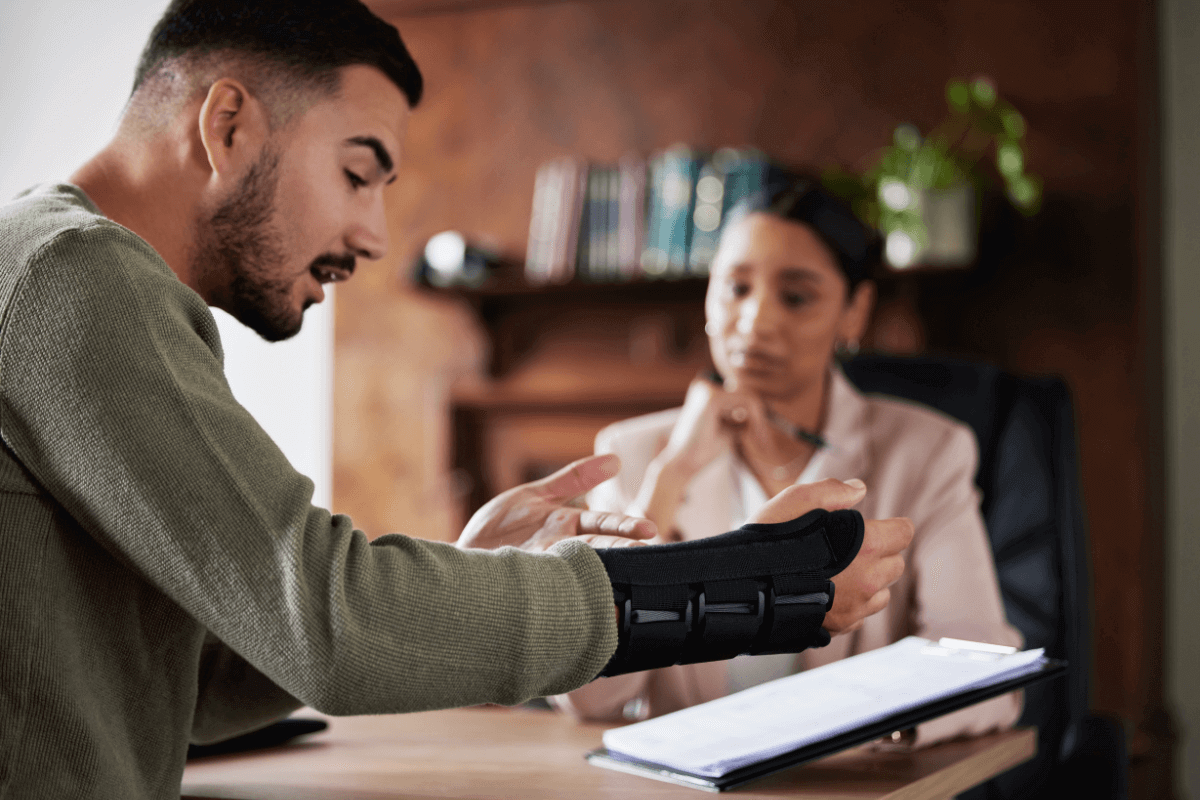
Partner at AKD Lawyers
Practice Areas: Insurance Claims

Understanding the types of damages available in a Louisiana personal injury case helps people see how the law measures the impact of an accident. Louisiana recognizes three main categories: economic damages, non-economic damages and, in limited cases, punitive damages. Each category serves a different purpose, and knowing the difference can make the entire process less confusing.
This guide breaks down how damages work, which laws govern them and the types of evidence that help support a claim. Everything here is strictly informational and based on Louisiana law.
Understanding Personal Injury Damages in Louisiana
Personal injury damages are the amounts assigned to the losses someone experiences after being injured because of someone else’s actions. The goal is to help restore the person as closely as possible to their pre-injury condition. Louisiana law sorts these losses into economic, non-economic and punitive categories.
People often hear about damages without knowing how they are calculated or reduced. One important rule affects all types of damages:
Louisiana follows a pure comparative fault system under Civil Code Article 2323, meaning an individual’s compensation can be reduced according to their percentage of responsibility but is not eliminated entirely.
This allows someone to still recover a portion of damages even if they contributed to the accident.
Economic Damages: Tangible Losses and Documentation
Economic damages are the easiest to understand because they involve clear financial losses. These losses have a paper trail, which makes them more straightforward to document. They reflect how the injury has affected someone’s finances both immediately and in the future.
Common types include hospital bills, diagnostic tests, medication, follow-up treatment, transportation costs, home care needs and property repairs. Lost wages and reduced earning capacity also fall under this category when injuries affect someone’s ability to work.
Economic damages also consider future needs. Long-term therapy, surgeries, medical devices and ongoing treatment plans may be included if there is evidence supporting them.
Records from healthcare providers, employers and billing departments form the foundation for proving these losses.

Non-Economic Damages: Emotional and Physical Impact
Some of the most significant effects of an injury cannot be measured in receipts or invoices. Non-economic damages recognize the emotional, mental and physical changes someone experiences after an accident.
Because these losses vary widely from person to person, courts look closely at the severity and long-term impact of the injury. These damages may cover pain, stress, anxiety, lifestyle changes, scarring and long-term disabilities. They can also include loss of enjoyment of life or strain on close relationships.
The value of non-economic damages often depends on factors such as the extent of the injury, the recovery period and how the injury affects daily activities.
Documentation like medical evaluations, mental health assessments and personal journals often help explain these long-term effects.
If someone is trying to understand how these intangible effects might be evaluated or documented, speaking with a New Orleans personal injury lawyer can help provide clarity about what factors typically matter in these cases.
Punitive Damages in Louisiana: When Courts Allow Them
Punitive damages are different from other types because they are intended to penalize extremely harmful behavior. Louisiana allows punitive damages only in specific and rare circumstances.
Under Louisiana Civil Code Article 2315.4, punitive damages may be awarded when someone is injured by an intoxicated or drug-impaired driver acting with reckless disregard for the safety of others. Courts require strong proof, and these awards are meant to discourage similar behavior in the future.
Punitive damages may also be considered in unusual situations like intentional wrongdoing or severe misconduct, but they remain exceptional.
Punitive damages in Louisiana are generally only available under Louisiana Civil Code Article 2315.4, which applies to cases involving intoxicated or drug-impaired drivers whose conduct shows reckless disregard for the safety of others.
Comparative Fault and How It Affects Damages
Louisiana’s pure comparative fault system adjusts damages based on how responsible each party was for the accident. If someone is found partly responsible, their damages decrease by that percentage.
For example, if total damages are calculated at 100,000 dollars and the person is 25 percent at fault, the final recovery becomes 75,000 dollars. This rule applies to both economic and non-economic damages.
Because of this, evidence proving how the incident occurred becomes just as important as proof of the injury itself.
Evidence Commonly Used to Prove Damages
Evidence plays a major role in showing the full impact of an injury. Courts and insurance companies rely on documentation to understand the financial and emotional effects of an accident.
Helpful forms of evidence include:
- Medical records, treatment plans and physician reports
- Wage statements and employment verification showing missed income
Additional supporting material may include therapy notes, personal journals describing daily limitations, accident reports and statements from family members. For major injuries, vocational experts or mental health professionals may help explain long-term consequences.
Table: Types of Personal Injury Damages in Louisiana
|
Type of Damage |
Description | Common Examples |
Evidence Typically Used |
| Economic Damages | Tangible financial losses | Medical bills, lost wages, repairs | Bills, receipts, wage records |
| Non-Economic Damages | Emotional and physical suffering | Pain, lifestyle changes, anxiety | Journals, evaluations, therapy notes |
| Punitive Damages | Penalty for reckless or intentional acts | DUI-related harm, intentional misconduct | Police reports, proof of conduct |
Frequently Asked Questions
What types of damages are recognized in Louisiana?
Louisiana recognizes economic, non-economic and punitive damages depending on the details of the situation and the evidence available.
How do courts determine non-economic damages?
Courts evaluate the injury’s seriousness, long-term impact, recovery time and how it affects daily life, supported by medical and personal documentation.
When are punitive damages allowed in Louisiana?
Punitive damages are allowed only in limited cases, most commonly when an intoxicated or drug-impaired driver causes injury while acting recklessly.
What is the comparative fault in Louisiana?
Comparative fault reduces a person’s damages by their percentage of responsibility while still allowing recovery under Louisiana’s pure comparative fault system.
What evidence helps prove damages?
Medical records, receipts, wage statements, therapy notes and personal journals all help demonstrate the full extent of losses.
Conclusion
Louisiana divides personal injury damages into economic, non-economic and punitive categories, each serving a different purpose in measuring the impact of an accident.
Economic damages cover financial losses, non-economic damages recognize personal and emotional hardship and punitive damages apply only in rare situations involving severe misconduct. Comparative fault can influence the final amount, making documentation essential.
If you want help understanding your options or reviewing how damages may apply in your situation, the team at Alvendia, Kelly & Demarest Law Firm is available to provide guidance. You can request a free consultation to discuss your circumstances in more detail.
Categories

In 2003, after being dissatisfied with the quality of legal care for victims of car accidents, Roderick ‘Rico’ Alvendia sought to establish a new firm focused on providing high-quality legal services to aid injured victims and their families. J. Bart Kelly, sharing Rico’s passion for upholding justice, joined the firm later that year, and established a partnership.







